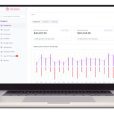US markets: US markets were stronger in the month, with the Dow Jones up +4.8% and S&P500 up +4.4%, as Fed held interest rates steady at 5.25-5.5% for a third meeting and gave its clearest signal yet that its aggressive hiking campaign is finished by forecasting 75bps of cuts in 2024 as the officials downgraded both GDP and inflation forecast for 2024, leading to swaps pricing in six rate cuts in 2024, beginning with a likely 25bps reduction in March.
Long-dated US treasury yields lower, with the 2-Yr yield at 4.25% and 10-Yr yield at 3.88%.
European markets: European markets were higher with both the Stoxx Europe 600 Index and UK FTSE up +3.8% and German DAX up +3.3%.
Asian markets: Asian markets were mostly lower over the month, with the Nikkei down -0.1%, KOSPI up +4.7%and the Shanghai Composite down -1.8%.
Commodities: Over the month, WTI oil price declined -5.8% to US$71.65/bbl, as EIA raised its estimate for U.S.’s 2023 oil output by 30k b/d to 12.93m b/d, while lowering 2024 outlook by -0.3% to 13.11m b/d.
ASX performance: The ASX200 gained +7.1%, as RBA said financial stress is unlikely to impact stability as majority of borrowers remain able to cover expenses and service their loans.
In Political News
Conflict in the Middle East escalated with Iran-backed Houthi rebels attacking container ships in the Red Sea and the U.S. military launching strikes on three installations in Iraq following a drone attack on U.S. troops.
U.S.-China tensions continued to simmer ahead of January presidential and parliamentary elections in Taiwan with Chinese President Xi Jinping reiterating his claim that Taiwan would “surely be reunified” with China.
In Economic News
Australian RBA decision: The RBA left the cash rate unchanged at 4.35%, with minutes from meeting revealing, members signaled they are prepared to tighten further should inflation take too long to return to target, while pointing to the possibility of a larger rise than anticipated in the unemployment rate, currently a very low 3.9%, with households already experiencing a “painful squeeze” on their finances.
Global growth outlook: The UN forecast global trade to decline -5% y/y in 2023 to $30.7 trillion, as high borrowing costs weigh on economies, US-China tensions redirect supply chains and more policies restricting cross-border commerce emerge.
U.S. Household wealth declined in 3Q23 by -0.9% to almost $151 trillion, marking the biggest decline in a year on a drop in the value of stock holdings. GDP for 3Q23 was revised -30bps lower to a +4.9% q/q annualized. Factory activity remained stuck in contraction territory for a 14th month in December, longest stretch of shrinking activity since 2000-2001, restrained by weaker orders with new orders contracting for a 16th straight month, partially offset by declining cost pressures with a measure of prices paid for materials declining by the most in 7-months. Consumer confidence rose in December by the most since early 2021, as households dialed back their year-ahead inflation expectations by -140bps, the most in 22-years to +3.1% y/y, while expecting costs rising +2.8% y/y over the next 5-to-10 years, matching the lowest since September 2022. Fed surveys across America showed labor market cooldown in 2024 with employers expecting to hire less, limiting wage gains. Fed Bank of Philadelphia revealed economic activity is declining in a growing number of U.S. states with indexes for 21 states, constructed by analyzing four labor-market indicators, payroll employment, average hours worked by production workers, the unemployment rate and inflation-adjusted wages, showing a contraction in the three months through November.
China: Factory activity shrank in December with official manufacturing PMI declining to the lowest level in six months while non-manufacturing PMI improved boosted by expansion in the construction sector as government-led infrastructure investment accelerated in recent months.
Australia: Government forecast budget deficit at A$1.1bn in the 12-months through June 2024, or 0% of GDP, a significant improvement from the May budget’s estimated A$13.9bn shortfall, with the improvement expected to extend into fiscal 2025 with the shortfall seen at A$18.8bn, or 0.7% of GDP, almost half the May forecast. Economy slowed sharply in 3Q23 with GDP advancing +0.2% q/q (+2.1% y/y) as consumers hunkered down in the face of rising borrowing costs while exports detracted from growth. Consumer confidence edged up in December after the RBA resumed an interest-rate pause, while still holding deep in pessimistic territory as households remain anxious about the outlook.
Europe: ECB kept interest rates on hold at 4%, however, said it will step up its exit from €1.7 trillion of pandemic-era stimulus with ECB President Christine Lagarde announcing rate cuts had not been discussed “at all” at the bank’s meeting as the bank downgraded GDP forecasts for euro zone for 2023 by -10bps to +0.6% and 2024 by -20bps to +0.8% while maintaining 2025 and 2026 outlook of +1.5% growth, and inflation forecasts for 2023 by -20bps to +5.4% and 2024 by -50bps to +2.7% while maintaining 2025 and 2026 forecasts of +2.1% and +1.9%, respectively. Private-sector activity in the euro area worsened in December with PMI contracting for a seventh month, with private-sector activity in both France and Germany worsening MoM and finishing the year in a deeper contraction due to low demand for goods and services.
U.K. BOE kept interest rates at a 15-year high of 5.25%, sticking with its message that borrowing costs will remain elevated for some time as there is still some way to go in the fight to control inflation, while downgrading U.K.’s 4Q23 GDP growth outlook by -10bps to 0%, with BOE Deputy Governor Ben Broadbent warning that sticky wages may force the central bank to keep rates elevated to drive out domestic inflation by forcing the economy into “a longer period of below-trend growth.” Economy unexpectedly shrank in 3Q23 with GDP falling -0.1% q/q. Wage growth slowed at the sharpest pace in almost two years with average earnings excluding bonuses rising +7.3% y/y in the three months through October, while vacancies and the number of people on company payrolls fell. House prices dropped -1.8% y/y in December with Nationwide Building Society, one of U.K.’s biggest mortgage lender, forecasting prices to stagnate or fall as much as 2% in 2024. Food inflation in UK stores fell sharply in December to its lowest level in more than a year, slowing to +6.7% vs +7.7% in November.
India: RBI voted unanimously to keep the benchmark repurchase rate at 6.5% and raised its 2023 GDP growth projection by +50bps to +7%, while signaling it’s nowhere close to cutting interest rates yet as a survey by the bank revealed Indian households expect inflation to climb in the next few months to a year, mainly driven by costly food and housing prices with the bank expecting inflation to average 5.4% for 2023 and 4.6% for 1Q24. Manufacturing activity moderated in December to the weakest in 18-months as the pace of factory orders and output lost momentum, while still outperforming Asian peers as new orders and business confidence continued to grow and manufacturers benefited from an easing in input costs, which rose at their second-slowest pace in more than three years during the month.
Japan: BOJ kept its short-term rate at -0.1% and maintained its yield curve control parameter with BOJ Governor Kazuo Ueda pushing back against bets for a near-term interest rate hike, saying it’s difficult to lay out a plan for an exit. BOJ gave itself more leeway to cut bond buying in coming months as upward pressure on yields subsided, with the bank setting lower limits for its purchases of government debt due in one to 10 years in its operations plan for 1Q24 compared with that for December while also reducing the frequency of buying for super-long tenors. Economy contracted more sharply than initially estimated in 3Q23 with GDP shrinking at an annualized -2.9%, as private consumption figures were revised to show a decline. Confidence among a wide range of Japanese companies picked up in 4Q23 with sentiment amongst large manufacturers marking its third straight gain and large non-manufacturer sentiment hitting fresh 32-year high.
Germany: Bundesbank forecast German economy to barely grow in 2024 after its contraction this year, anticipating GDP growth of +0.4% in 2024 after -0.1% drop in 2023, followed by +1.2% expansion in 2025. German business expectations worsened for the first time since August in December with IFO institute warning the country may witness a shallow recession in 2H23 as it continues to suffer from hesitant consumers, weak global demand and geopolitical tensions. German joblessness rose by 5,000 in December leading to unemployment rate rising +10bps to 5.9%.
South Korea: Parliament approved a 656.6 trillion won budget for next year, ~300bn won smaller than the government’s initial proposal. Exports continued to grow in December, rising +5.1% y/y, helped by rising demand from the US that overtook China as the biggest market for the first time in two decades, which combined with -10.8% y/y decline in imports, resulted in a trade surplus of $4.5bn, with Korea International Trade Association forecasting exports to rise +7.9% y/y in 2024 to reach $680bn and imports to increase +3.3% y/y, resulting in trade surplus of $14bn. Inflation eased slightly in December with CPI rising +3.2% y/y and core CPI rising +2.8% y/y, with BOK’s report pointing to moderating pressure in a variety of segments of the economy and forecasting that inflation would eventually slow toward the 2% target by the end of 2024.
On Stock Specific News
Core Lithium Ltd (CXO) – declined -10.7%, after announcing it is reviewing its operations amid a slide in lithium prices.
IDP Education Ltd (IEL) – declined -11.6%, after announcing CEO Murray Walton will step down from his current role in March 2024.
PEXA Group Ltd (PXA) – declined -7.3%, after warning Smoove’s acquisition will reduce operating EBITDA by A$4-6m in 2H24.
- Monthly Wrap: US attempting to quell China’s control on semiconductors and AI - July 9, 2024
- April 2024 Monthly Wrap: Economic growth slows to a near 2-year low as inflation growth delays interest rate cuts - May 10, 2024
- Monthly Economic Wrap: Rate cuts, a Chinese nuclear arsenal and impending TikTok ban - April 5, 2024













Leave a Comment
You must be logged in to post a comment.